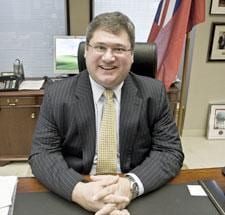Sex reassignment surgery (SRS) has been funded in Ontario since June, but the minister of health still seems confused about it.
The Ontario Health Insurance Plan (OHIP) has been paying for SRS since Jun 3, after it was announced in May that the government would be relisting the procedure again after 10 years.
But health minister David Caplan — who replaced George Smitherman in the portfolio in June — seems unaware of that or that the debate over exactly what shape the final process for SRS in the province will take is ongoing.
In an interview on Nov 13 Caplan said Toronto’s Centre for Addiction and Mental Health (CAMH) — which has come under extensive fire from activists for its treatment of trans people in the past — will be in charge, using 10-year-old guidelines.
“There has been a decision which has been taken to return back to the conditions and eligibility criteria which existed in 1998,” said Caplan. “It’s going through the process and it will be rolled out. CAMH is the primary agency on those elements.”
But the day after the interview Steve Erwin, the minister’s press secretary, phoned to say the minister’s remarks may have conveyed “the wrong impression.”
Erwin says that talks between CAMH and the Sherbourne Health Centre (SHC) are still going on over exactly how SRS will be run. He says 1998 standards will not be used and CAMH will not be in sole charge.
“They both agree there needs to be different access points,” he says. “The advice we got and we’ve heard it loud and clear is that we need to look at international standards.
“I think the discussion is that CAMH will be part of it but not the whole thing.”
Susan Gapka, the chair of the Trans Health Lobby Group, says the minister’s confusion is worrying.
“It concerns me that the minister would think that’s possible, that that’s the messaging going out,” she says. “I’m concerned that the minister isn’t as aware of the issue as much as we’d like him to be.”
Susan Pigott, CAMH’s vice president of communications and community engagement, says SHC and CAMH are trying to set a date for a meeting with the assistant deputy minister of health. She says CAMH doesn’t want to be the only agency in charge of SRS.
“We’re on record as saying we think the time has come for there to be more than one access point,” she says.
Pigott says CAMH is dealing with the backlog of people who were approved for surgery but couldn’t afford it without OHIP.
“CAMH is doing its best to clear the backlog of people who chose not to have the surgery when it was delisted,” she says. “There are six to eight people who were preapproved during the time it was delisted. We have now started to build up a waiting list of of new clients. The last I heard our waiting list is up to about six months.”
Gapka says the waiting list points to the need for faster action.
“It’s moving slowly,” she says. “I’m pleased with the progress. There’s some hope. On the other hand this is a matter of life and death, to use the old cliché. Six or eight or 10 months is too long. We need to open that door as quickly as possible.”
OHIP will currently cover genital reconstruction for both male-to-female and female-to-male surgeries, as well as mastectomies. However OHIP will not cover breast augmentation or hormone treatment, although Erwin says some people may be eligible to have hormones covered by the Ontario Drug Plan.
Gapka says all related medical costs should be covered by OHIP.
“We still need more than we got,” she says. “Our position has been funding for SRS and all related medical treatments, including hormones and electro-lysis.”
In the interview Caplan said there would be no funding cap placed on the number of people who can obtain SRS each year.
“What we’ve essentially done through expert medical opinion and the cases that are known out there is an estimation of how many people would go through it,” he said. “It’s not a huge-cost item. The budget includes funding for sex reassignment surgery.”
Gapka says she hopes Caplan will eventually agree to fund access to surgery in Ontario hospitals. Under the relisting the actual surgery will be performed at a clinic in Montreal.
“It took us 10 years to get it relisted,” says Gapka. “What are the chances of hospitals opening up to perform surgery across the province? Do we need to educate the health minister? Probably, because ultimately he makes the big decisions on opening surgical space.”


 Why you can trust Xtra
Why you can trust Xtra


